Hair Loss Caused by Stress - Could it be Covid-19?
Excess hair in the shower drain, hair shedding during the day, extra hair on the pillow in the morning are all signs of hair loss that could be caused by stress. In our Covid-19 times, it is very possible that the stress caused by fear of the pandemic, job loss, family and relationship stress, could be all be contributing to hair loss.
It is normal to lose hair each day. Anywhere from 50 to 100 hairs a day is considered normal. But noticeable hair loss can be a sign that something else is going on.
Click here to learn about the normal hair growth and hair loss cycle.
Stress is known to cause hair loss
The kind of stress felt in a high tension exam period was the subject of a recent study published by the National Centre for Biotechnology Information Hair and stress: A pilot study of hair and cytokine balance alteration in healthy young women under major exam stress1,. The study found that the stress these women were under did cause an interruption to the natural growth of hair.
Another study performed by the Department of Dermatology, University Hospital Hamburg-Eppendorf, University of Hamburg, Martinistrasse 52, 20246 Hamburg, Germany Burden of hair loss: stress and the underestimated psychosocial impact of telogen effluvium and androgenetic alopecia2 states that "stress has long been implicated as one of the causal factors involved in hair loss".
It also states that the stress caused by hair loss is a significant contributing factor to hair loss. Further reading and a real life story of stress and hair loss in a woman in her forties can be found here.
The science behind stress and hair loss
Stress seems to cause hair loss in a variety of ways. Stress, and in particular chronic stress, leads to a sustained increase in the body's cortisol levels. Long term raised cortisol levels can lead to chronic inflammation. It can also lead to the suppression of the immune system which can also lead to disease (such as cancer and auto-immune for example).
Due to this Cortisol effect therefore, it can be said that lifestyle, poor diet and stress, all over time, can lead to systemic inflammation. Systemic inflammation hyper-sensitizes the hair follicles to androgens which is why chronic inflammation can cause androgenic alopecia - a type of hair loss.
There is a viscous cycle between stress > raised cortisol > inflammation and female hair loss. There are other factors at play here too, such as type 2 diabetes, being over weight and oxidative stress affecting the mitochondria of the hair cell. This may sound complicated, but the important thing to do here is to try to identify your triggers and your contributing factors. For a full explanation about triggers and contributing factors go here.
But briefly, while some women may be in menopause or taking medications that are known to cause or trigger hair loss, they may not have any form of hair loss if they are otherwise healthy. However if a women has systemic inflammation then the medication or the onset of menopause may cause hair loss in that woman.
This is why when women ask on Facebook groups if others have found hair loss caused by a certain medication or trigger, there will always be a number of women who have also taken that medication successfully for many years, with no hair loss.
There are many causes of hair loss in women, stress being only one of them. We have covered more causes of hair loss in women here.
Cure for female hair loss
So, finding a cure for female hair loss is tricky because there is often not one clear causative factor. As previously mentioned, female hair loss is often caused by a trigger along with a contributing factor. Stress could be just the trigger to switch on a bout of shedding or telogen effluvium, when there was an underlying and unknown contributing factor at play.
For example, if a women is going through menopause and the resulting hormonal changes, or is low in iron, or vitamin D, the body could be struggling with hair growth, but overall, doing ok (just). With the addition of the stress caused by the current pandemic, telogen effluvium could be triggered.
For this reason, eradicating the stress, which indeed may have been the trigger, will not necessarily stop the shedding or the hair loss, because the underlying condition has kicked in. So then it becomes important to identify the underlying health conditions in order to resume normal hair growth.
Covid-19 stress and hair loss
It may be possible that the stress and anxiety felt during the current Covid-19 pandemic has either triggered hair loss or has exacerbated it. Family conflict, home schooling, relationship issues, fear of catching the coronavirus, are all possible stressors and therefore hair loss causes, in susceptible individuals.
Bear in mind though, that when telogen effluvium is triggered by stress, it isn't usually noticeable at the time. Stress causes an interruption to the hair growth cycle, resulting in more hair entering the resting phase. Once hair is in the resting phase, it will gradually loosen, and eventually fall out. So it is often as long as three months later that we notice the intense shedding that was caused by the stressor.
The most important thing to do if you think this may be the case for you is to see your GP and arrange a blood test. There are many possible underlying causes which your GP can test you for. It is common for women to have low iron and hormonal imbalances which can both contribute to hair loss. But also common are low Vitamin D, autoimmune diseases, skin and thyroid conditions.
This is why it is important to see your health care professional. We strongly advise against taking vitamin supplements in the hope that it will cure hair loss. Some supplements when taken when not needed, can cause serious health issues and even hair loss.
Try to de-stress
Easier said than done of course. But if you are aware that stress is an issue for you and for your hair health, take some time out for you. Try long walks, time out or away from the kids with a warm cup of tea, meditation, prayer (if you are so inclined), a massage.
But overall, take care of yourself. There's only one you and you are precious.
About the Author:
Bambi Staveley is a trained nurse, author of How to Make Thin Hair Fat - Causes and Solutions of Unexpected Thinning Hair in Women (published by Barrallier Books 2016) and herself a female hair loss sufferer. Following her own hair loss journey which began in 2008, Bambi dedicated her life to female hair loss research and to finding some way to solve the mystery and at the very least, cover up the problem so it was her own secret. Naturally, once she was able to both cover up her hair loss and eventually, grow her hair back, she was driven to share that information with female hair loss sufferers the world over.
[1] https://www.ncbi.nlm.nih.gov/pmc/articles/PMC5397031/
[2] https://pubmed.ncbi.nlm.nih.gov/15304082/







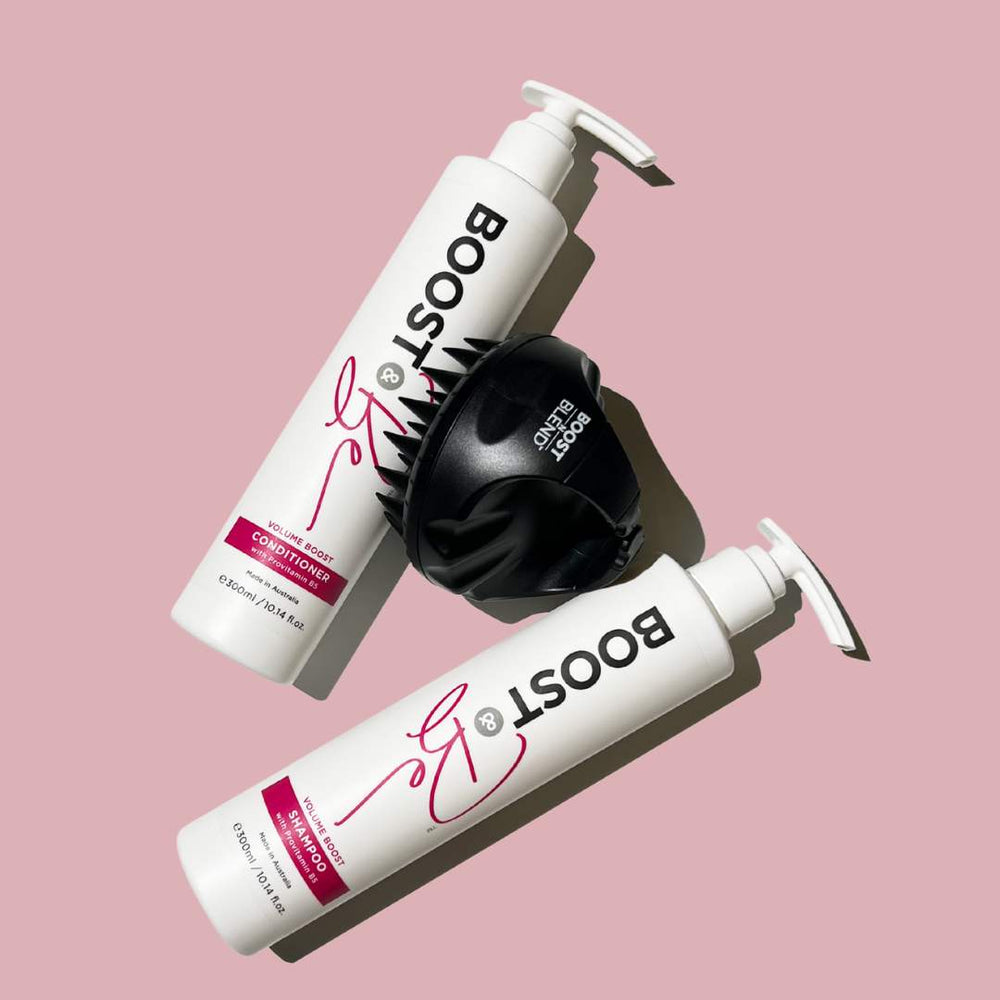
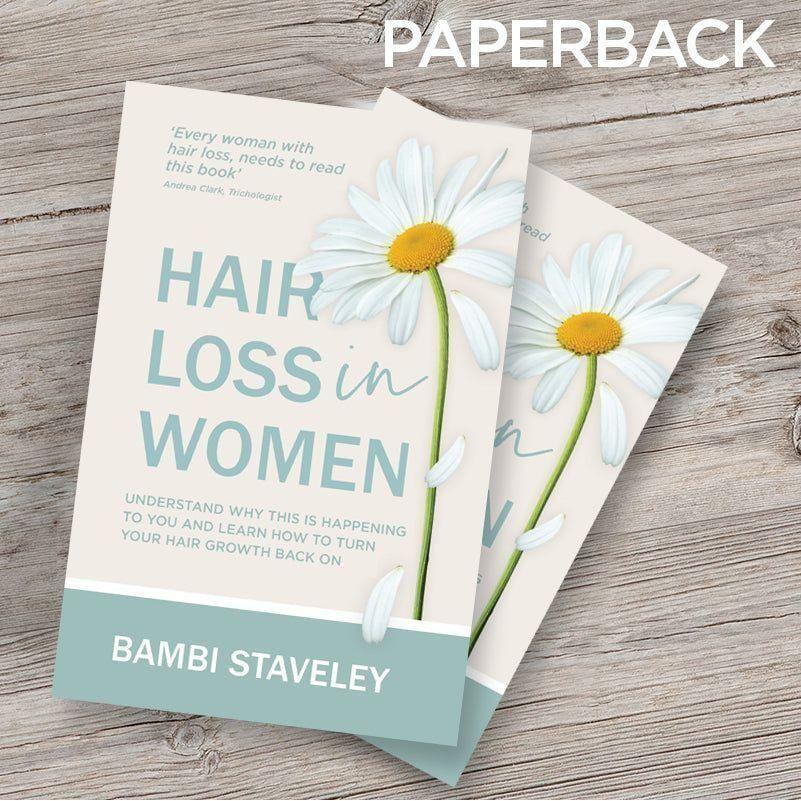
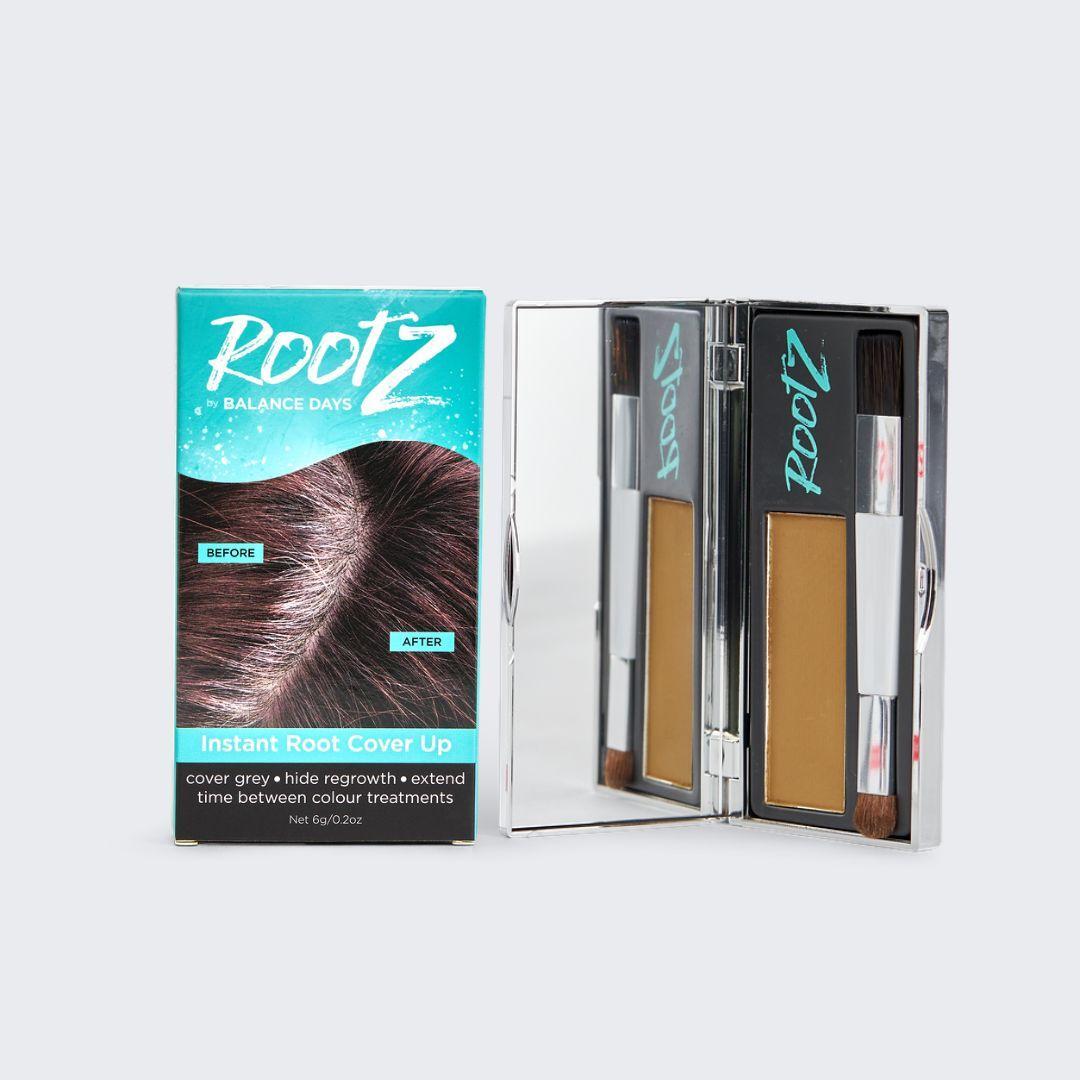
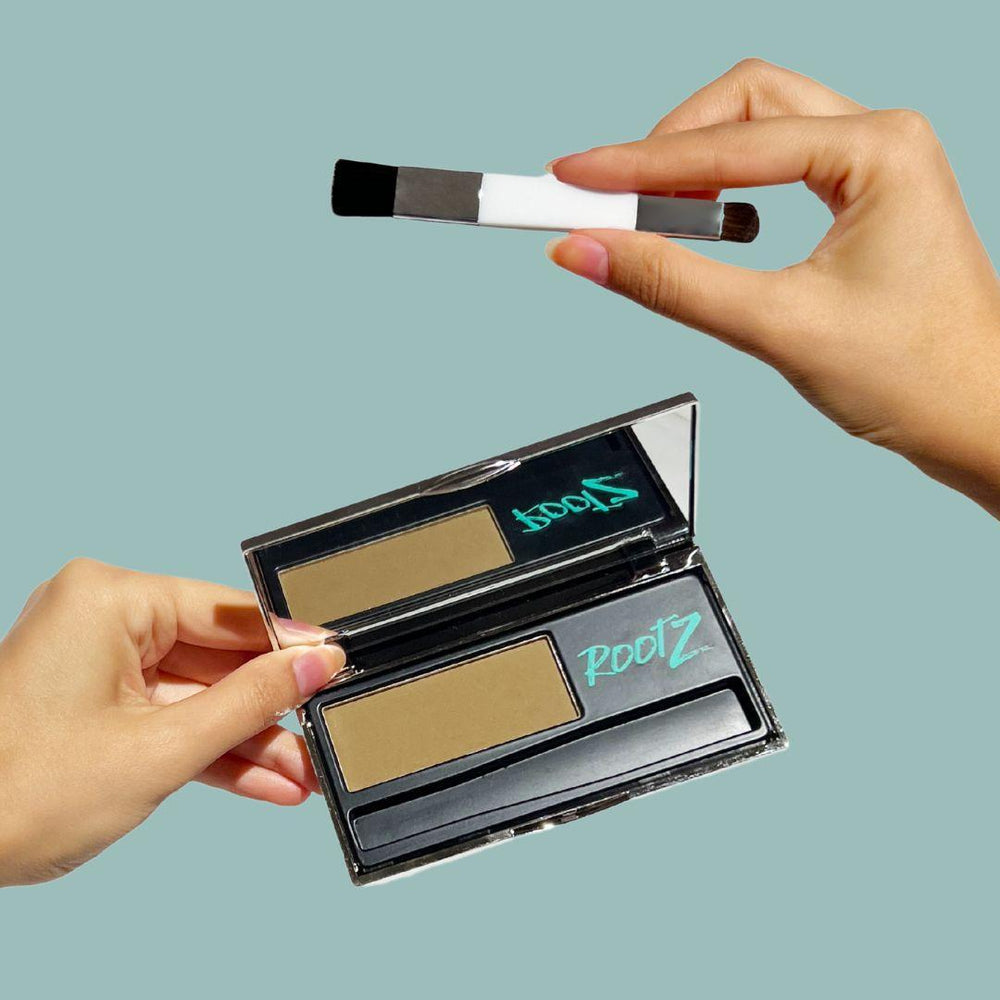


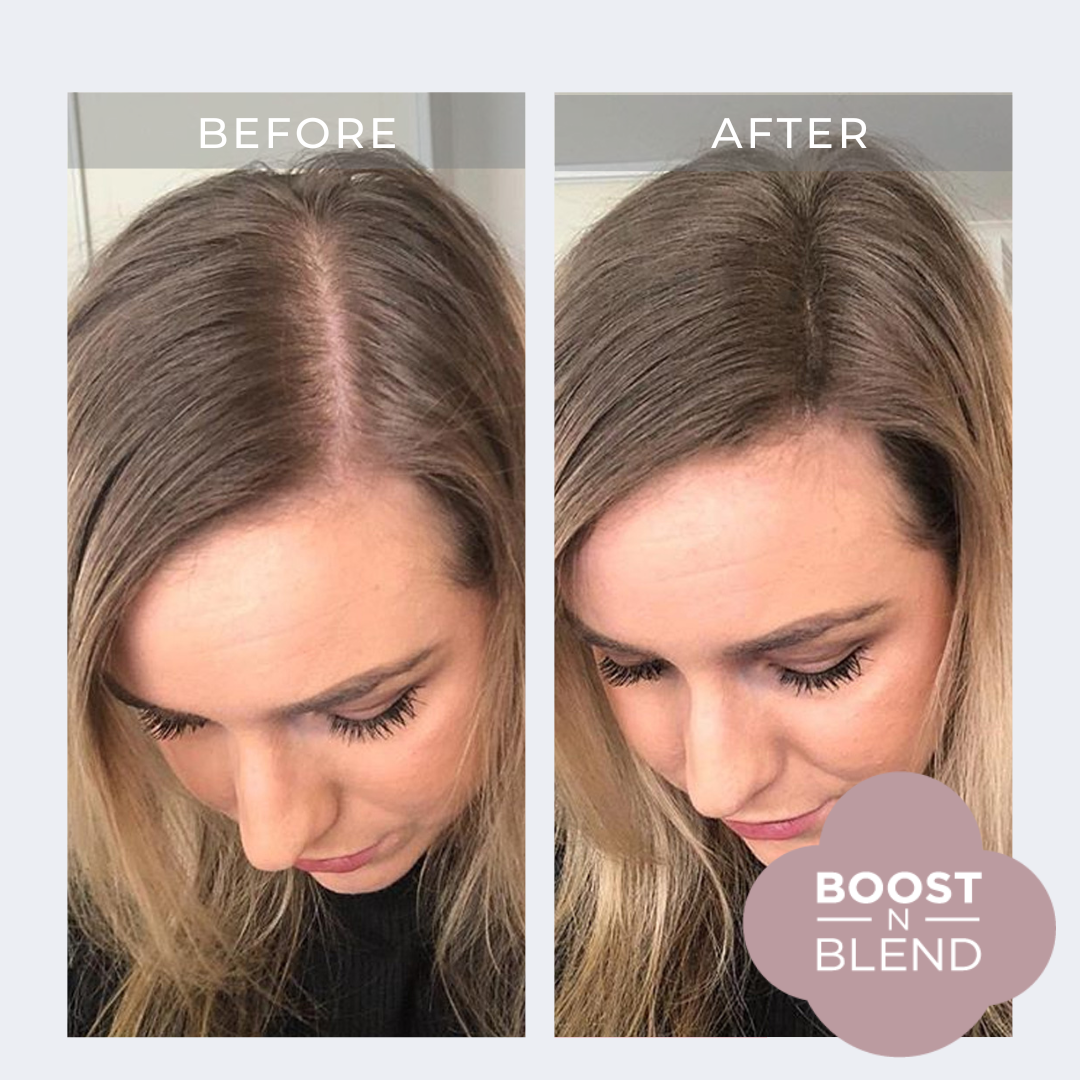
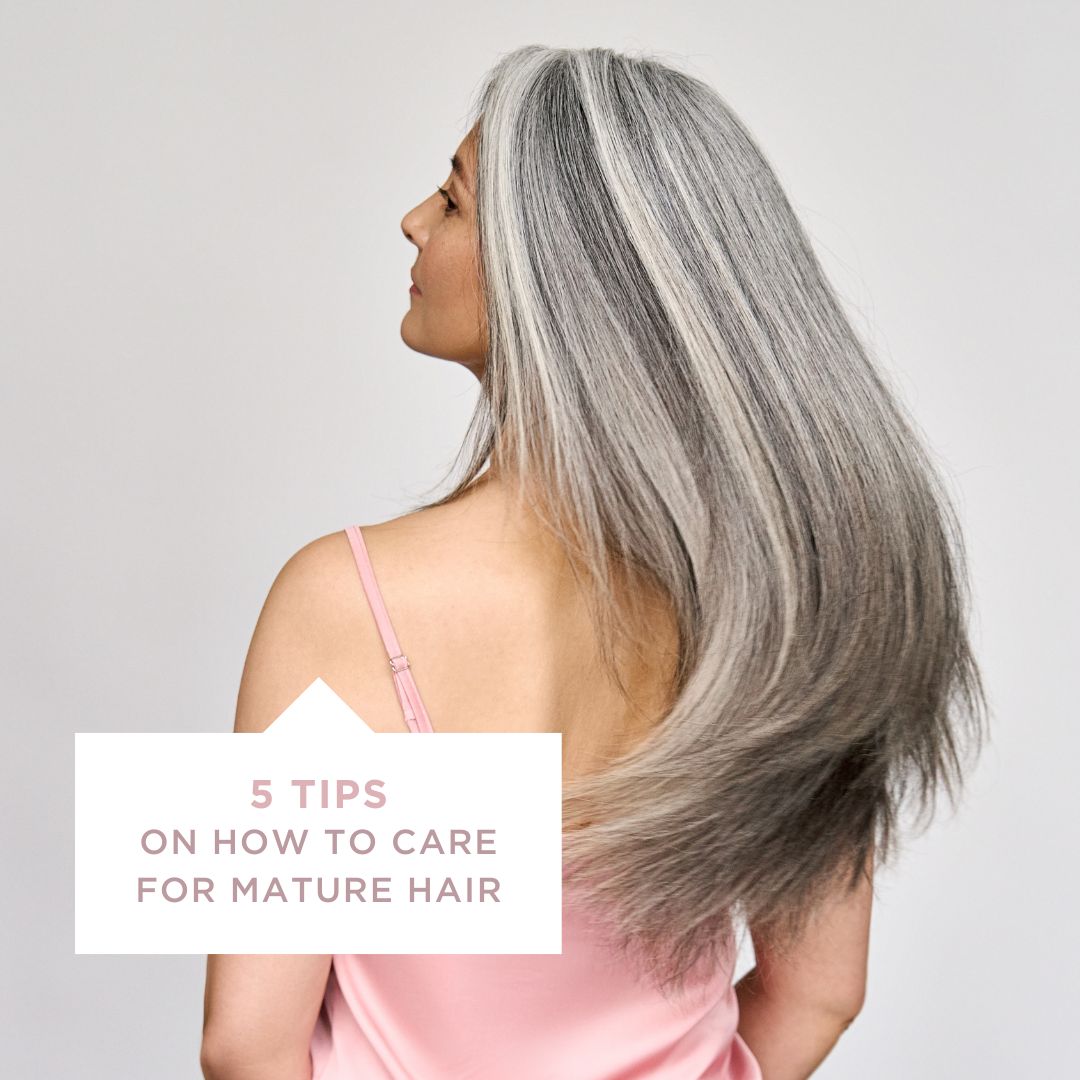


Leave a comment